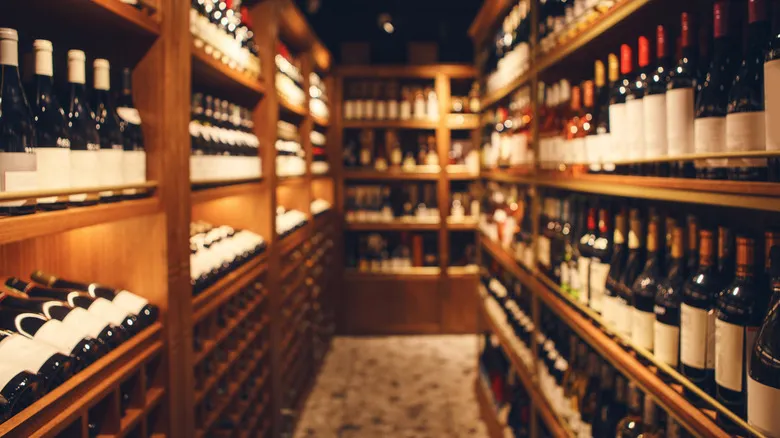American wines offer quality and affordability
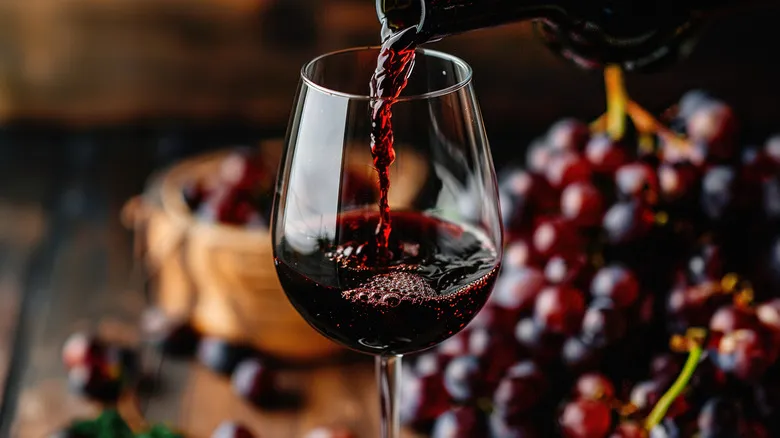
While French and Italian wines are rightly renowned for their excellence, American wines should not be overlooked: they can provide exceptional quality and value. "You’ll often discover better deals in American wines for one straightforward reason: they don’t need to be imported, which significantly reduces their cost," said Alison Morris Roslyn, founder of Francey Not Fancy.
If you enjoy French wines, look for domestic options made from the same grape varieties. "If you love a red French Burgundy, those are always crafted from pinot noir grapes, so consider trying a pinot noir from Oregon instead," Roslyn recommended. "Some of the finest pinot noirs in the country are emerging from Willamette Valley in Oregon, and many of them are styled after Burgundian wines." If you’re concerned that these wines might be inferior imitations of their European counterparts, rest assured: French winemakers recognize and appreciate the quality of American-grown grapes. "In fact, some of the most prominent names in Burgundy, such as Domaine Drouhin, are now producing wines in Oregon as well," Roslyn noted. Josh Phelps of Grounded Wine concurred, stating, "I believe there is incredible value in Washington State, particularly for cabernet blends and riesling. There are excellent California sauvignon blancs available for under $15, and the same goes for Bordeaux blancs."
Seek out wines from neighbors of prestige regions
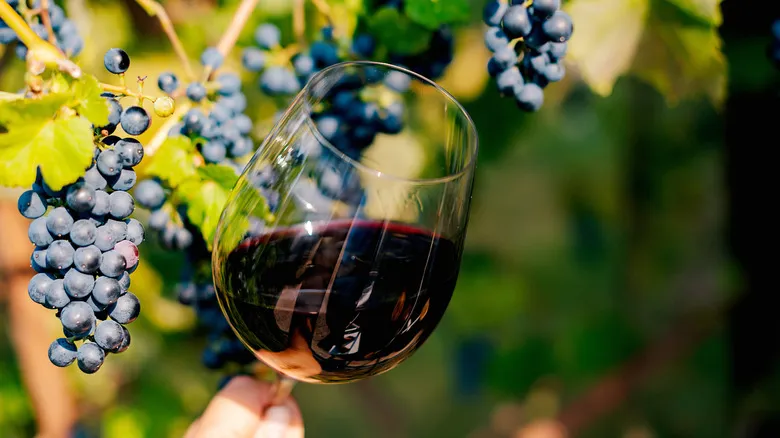
High-quality wine embodies its terroir, and certain areas, even specific vineyards, can command exorbitant prices due to their distinctive combination of climate and soil that yields outstanding grapes. Some of these regions are so esteemed that their names are legally protected (for instance, only sparkling wines produced in France's Champagne region can be labeled as Champagne).
Since these areas can only produce limited amounts of wine, enthusiasts often have to pay a premium. However, if you're worried about your budget, Alison Morris Roslyn suggests, "Seek out wines from regions neighboring the pricier ones. If you enjoy a white Burgundy, like Puligny-Montrachet or Meursault, consider trying a Saint-Aubin. It's a lesser-known area that shares the same exquisite characteristics as those more expensive wines (imagine a white wine that is both rich and precise)." She also noted that these regions can surprise you with hidden gems, such as the pinot noirs from Sancerre. "Many people associate Sancerre solely with sauvignon blanc, but they are producing some remarkable reds that can compete with Burgundies, often at much more accessible prices."
Look for wineries changing their business model
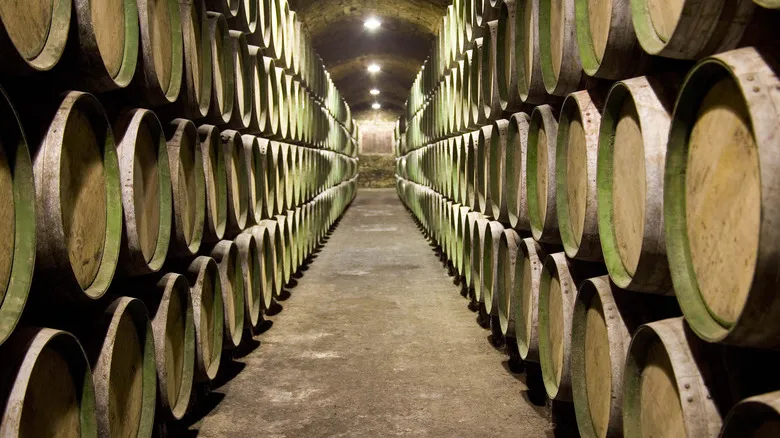
Interestingly, office politics can influence wine prices. "The best way to discover stylish French wines without the high price tags is to look for producers who are altering their business models," said Matthew Cocks, a consultant at VinoVoss. More than half of French wineries belong to cooperatives, where growers combine their vineyard resources, expertise, and holdings, making production and cultivation more cost-effective for everyone involved.
However, producers in prestigious regions sometimes choose to leave these cooperatives and venture out on their own, creating valuable opportunities for budget-conscious wine enthusiasts. "Over time, grape prices in regions like Burgundy have significantly increased. This rise in value can entice cooperative members with high-quality vineyards to depart and create their own wines for a larger share of the profits," Cocks explained. "Initially, when they leave the cooperative, these independent producers have limited brand recognition and no market presence beyond their own tasting rooms. As a result, pricing becomes a crucial selling point until the brand gains traction," he added. "Finding producers who have recently exited cooperatives is an excellent way to enjoy exceptional wines at lower prices while also supporting small businesses during their critical early stages. The Macon wines from Jean Manciat serve as a prime example of this."
Learn about emerging regions
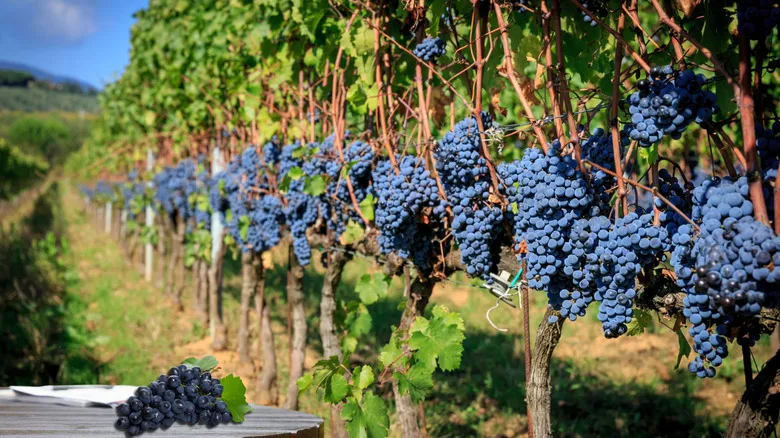
Climate change is a reality, and while it has caused some flowers to bloom earlier, it has also influenced the growth of wine grapes. Matthew Cocks points out that this could be a fortunate development for budget-conscious wine enthusiasts.
"A lesser-known aspect is that climate change can lead you to discover better and more affordable wines. You just need to know where to search," he explained. "The Bordeaux region of Moulis-en-Médoc serves as a prime example. Much of Moulis-en-Médoc is situated on gravel-based soils that resemble those of the top producers in the more renowned appellations of Pauillac and Saint Julien. The well-draining characteristics of these gravel soils make them ideal for cultivating cabernet sauvignon, which is regarded as the grape with the highest quality potential on the Médoc peninsula." However, he noted that the region has traditionally been cooler than its more esteemed neighbors, resulting in grapes that haven't reached the same level of ripeness as those from surrounding areas. "Currently, the prices for Moulis-en-Médoc wines remain low, but the warming climate has allowed its cabernet sauvignon to ripen beautifully, producing delightful, classically styled Bordeaux wines based on cabernet sauvignon," he added.
Here's where the experts go for affordable wine
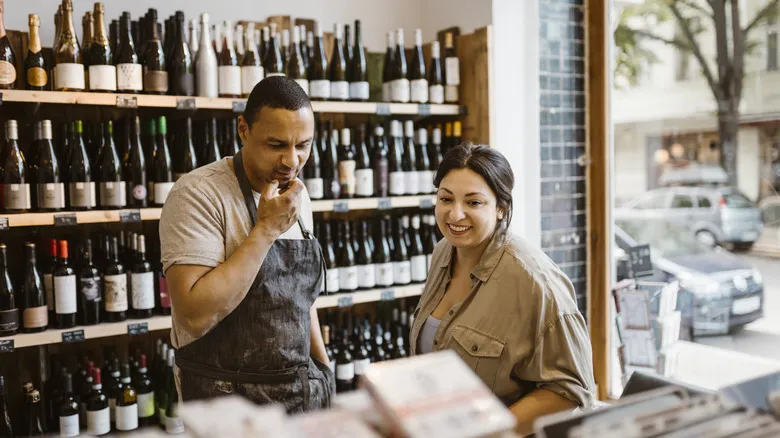
For budget-minded shoppers, the location of wine purchases can be just as crucial as the selection itself. If you have a specific wine in mind, you can find excellent options at reasonable prices without stepping outside. "I can't emphasize enough how convenient and simple it is to shop for wine online," said Alison Morris Roslyn, praising the competitive prices and availability of free shipping.
If you prefer a more personalized shopping experience, consider building a rapport with a local wine retailer. "Your neighborhood wine shop often has fantastic deals, and you'll be supporting a small business at the same time—it's a win-win!" noted Antonio Bertoni. "We always seek out shops that host wine tastings occasionally. This way, you can discover your favorite wines before investing in a full box or bottle." Sommelier Audrey Wayne concurs, stating, "A local shop is your best option for discovering affordable wines. While they may showcase premium selections, their knowledgeable staff can help you find great bargains."
Don't discount boxed or canned wines
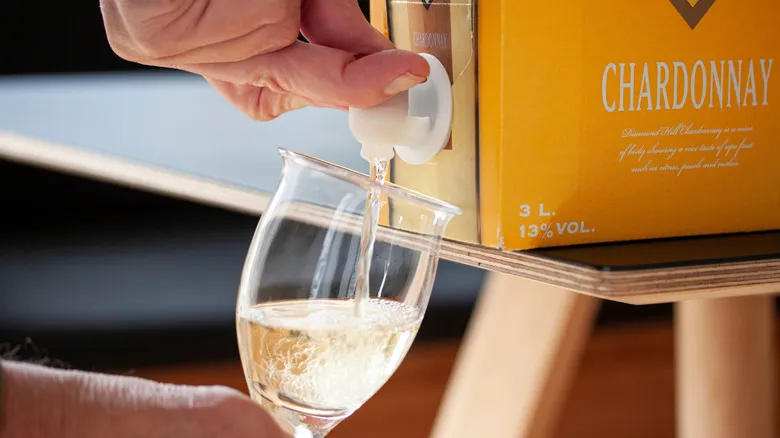
In recent years, boxed wine, which was once the subject of jokes, has become a common sight in supermarkets. Canned wine is also on the rise, and much of it is available at reasonable prices, prompting the question: Is it any good?
Experts suggest that it depends on your preferences. Antonio Bertone, founder of Alileo, noted, "An increasing number of premium wineries are opting for bag-in-box packaging, not just as a sustainability measure but also because it offers better functionality for everyday wines. Ultimately, consumers benefit from wines that taste better and have a longer shelf life." Alison Morris Roslyn agrees that boxed wine has shed its stigma—up to a certain extent. "The days when boxed wine was synonymous with poor quality are long gone. That said, they do have their appropriate contexts. Are they a convenient choice for a tailgate or backyard gathering? Absolutely. Would I serve them at a formal event or wedding? Probably not. Should you give canned wine a try the next time you see it on an airplane? Yes! They are significantly better than the mini-bar bottles." Josh Phelps also views boxed wines as a solid choice for casual drinking. "Field Recordings in Paso Robles offers a fantastic boxed wine," he shared. "I love the concept of having rosé or sauvignon blanc on tap in my fridge."
Don't get taken in by flowery label language
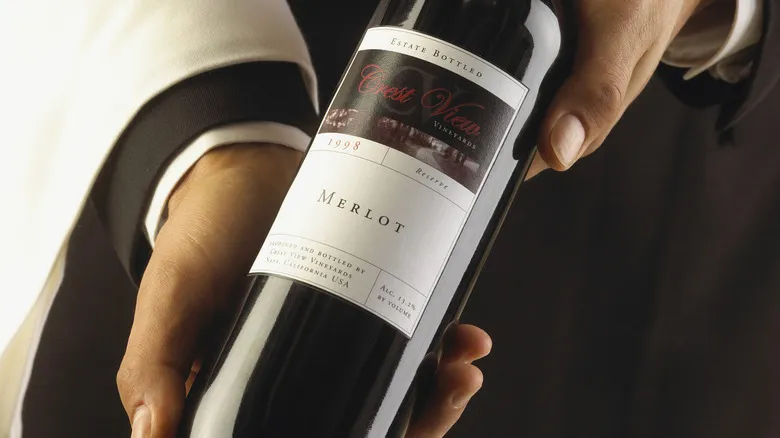
For beginners, one of the most daunting aspects of wine shopping, aside from the occasionally shocking price, is the language used on wine labels. If it’s not in French, Italian, or German, it can often seem unclear and perplexing. Experts suggest that much of this terminology is essentially meaningless. "Don't get too carried away when you see terms on American wines like private selection, handcrafted, award-winning, winemaker's choice, natural, old vine, artisan, or reserve," cautioned Alison Morris Roslyn. "These are just marketing strategies, not significant or regulated terms in the U.S. Don’t let them mislead you into thinking you’re purchasing a superior wine."
However, this doesn’t mean you should completely disregard the information on labels. Roslyn recommended looking for the following details: "Is the importer reputable? Is the wine sourced from a single vineyard? What is the grape composition? What type of fermentation process was used? How was the wine aged? Who is the winemaker? Did they employ sustainable farming methods? These questions can provide you with a clearer understanding of what you’re buying and serving." Audrey Wayne added that knowing the importer of your favorite wine can help you discover similar options: "If you find a wine you enjoy, check who imported or distributed it, and then explore their portfolio. They likely aim to maintain similar quality and price ranges."
Seek out styles that emphasize technique, not location

Premium wines, much like real estate, hinge on the principle of location, location, location. Only a select few regions have established themselves as champions of producing outstanding grapes and wines. As a result, vintners in these areas can set their prices high—often beyond what most of us are willing to spend, except for special occasions. For those passionate about wine but mindful of their budget, exploring by region can be disheartening.
Matthew Cocks proposed a straightforward solution. "Consider technical wine styles where the production method significantly influences the quality and character of the final product, rather than just the grape's origin," he suggested. "Champagne is a prime example of such a technical wine style... The same techniques are employed in various other northern French wine regions, like Burgundy and the Loire Valley, to create sparkling wines known as Cremant." He noted that these wines are not only enjoyable but also more affordable. With lower land and grape costs outside of Champagne (and reduced marketing expenses), "Cremants are priced around $15, making them an excellent option for everyday indulgence."
Compare prices before you buy
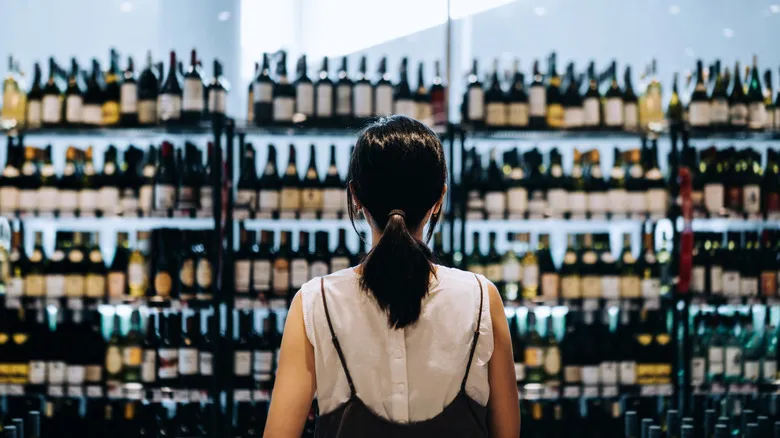
For those who aren't seasoned wine shoppers, determining whether the price of a specific bottle is fair can be challenging. Even if the price fits your budget, it's essential to ensure that you're paying a suitable amount for the quality of wine you will receive.
This is why comparing prices for a wine you're considering is crucial before making a purchase. Spending a few minutes researching online can not only save you some money but also enhance your wine knowledge. Alison Morris Roslyn noted, "Many retailers will match the prices you find online. Even if they don't, you'll at least have a better understanding of whether you're getting a fair deal and if the shop owner or staff are providing you with reliable information about their wine recommendations." Jennifer Wall concurs, stating, "If you're looking for a specific vintage, a quick Google search can show you the suggested price you should expect to pay." Additionally, Wall mentioned that if you're buying wine for a larger group, most retailers typically offer discounts for bulk purchases.
Seek out skilled small producers
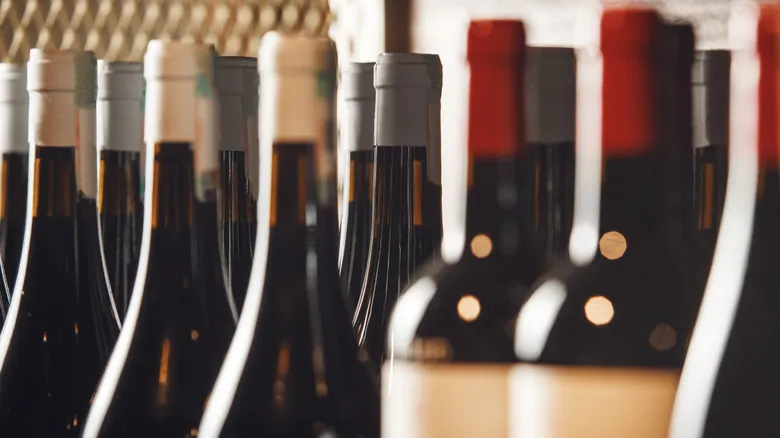
American consumers often think in terms of economies of scale. To cut costs on food and clothing, for example, we tend to opt for fast food and quickly produced fast fashion from large retailers. However, this mindset can lead to poor choices when it comes to wine. While mass-produced, low-end options might save you a few dollars, they come at a significant cost to quality. "Although I appreciate the convenience of grocery stores, you'll encounter many average labels, often with added sugar to extend shelf life," says Audrey Wayne.
Instead, Wayne suggests that shoppers look for wines from small, independent producers. "Smaller wineries are committed to quality since they have limited opportunities to build their reputation, whereas larger brands can blend from various vintages without changing their labels," she explains. "Don't worry too much about whether it's a good year." Sylvia Ba, a consultant for VinoVoss, concurs. "Some independent winemakers who take a hands-on, low-intervention approach produce outstanding wines at reasonable prices," she notes. "Notable examples include Fanny Sabre and Maxime Crotet. In Champagne, you can also find excellent options under $45 from grower producers. These smaller operations prioritize the quality of their grapes and craftsmanship over spending on branding and marketing." However, discovering these wines may require some effort. "These bottles aren't widely available, but if you visit a specialized wine shop, you'll uncover these hidden treasures," Ba advises.
Research wines before buying them
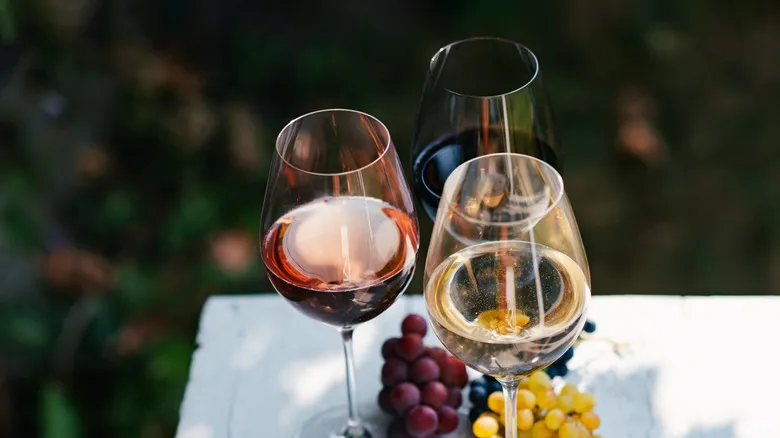
Looking for a quick route to decision-making overload? Step into a wine shop, wander around, and gaze at a sea of labels. Which one will complement your dinner tonight? Which will pair well with your planned menu? If you're not well-versed in wines, their producers, and the characteristics of various varietals, you might end up with a bottle that disappoints.
Luckily, technology has simplified the process of learning about wines and what to consider before you head to the store. "We really enjoy the Decanter app," Antonio Bertone shared. "Decanter is a trusted source for wines from around the globe, allowing you to easily access tasting notes and ratings. This resource can help you discover some true gems." Additionally, get to know the critics that experts rely on. "Lettie Teague from the Wall Street Journal consistently offers great affordable selections," Audrey Wayne noted. "I also adore DenverWineMerchant (Sally is a true genius) and LuciaLovesWine — she provides excellent recommendations from Trader Joe's and has experience in Michelin-starred restaurants." Alison Morris Roslyn suggests following reviews from James Suckling, Jeb Dunnuck, Robert Parker, Jancis Robinson, Wine Spectator, Wine Enthusiast, and Wine Advocate, along with her own page for tips on budget-friendly wines. "They often provide valuable insights about a wine you're considering, including whether it's best to drink now or hold onto, as well as suitable food pairings," she explained.
Learn what you like

While insights from respected critics can provide valuable direction for wine buyers, personal taste is ultimately what counts. After all, you’re the one purchasing and savoring the wine, so your preferences should take precedence over impressing critics you’ll never meet.
If you’re new to the world of wine, how can you discover what styles you enjoy? A simple first step is to dive in and sample anything that piques your interest. "For those eager to try new formats, like our canned wines, I encourage you to just go for it!" said Hilary Cocalis. "If you're unsure where to begin, seeking recommendations from your local wine shops or favorite producers can be very helpful." Engaging with fellow wine enthusiasts can also guide you toward wines you’ll love. "Just stay curious—talk to wine lovers and ask questions!" advised Audrey Wayne.
Explore natural wines
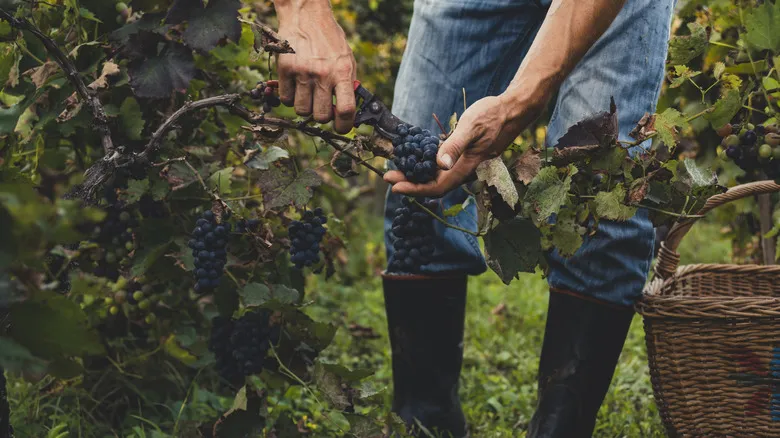
Inexpensive wines often come at a low price for a reason. "Nowadays, many budget-friendly wines are produced with unnecessary additives to increase volume," explained Antonio Bertone. "By choosing natural wines, you can avoid these extra chemicals and savor a more authentic wine experience." Although there is no official industry or legal definition for "natural wine," The Oxford Companion to Wine (as referenced by Wine Folly) characterizes natural wines as those fermented without added yeast, produced with minimal or no added sulfites, and made from grapes that are grown and hand-harvested from "sustainable, organic, or biodynamic vineyards."
Natural wines also possess a unique flavor profile—they are often funkier and yeastier than traditional wines and may appear cloudy rather than clear in the glass. A well-known example is orange wine. Contrary to what the name suggests, it is not made from oranges; rather, it is a type of white wine traditionally produced in Italy and Slovenia, gaining its distinctive hue from the skins and seeds of the grapes that remain in contact with the juice during fermentation. The unique flavors of natural wines may not appeal to everyone. However, if you're interested in experiencing a taste of the past or already appreciate the bold, yeast-driven flavors of farmhouse ales, they are certainly worth trying.
Recommended
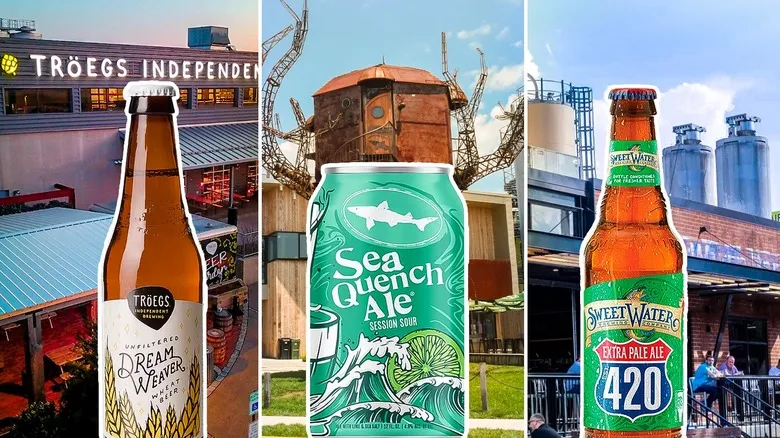
15 Breweries Beer Lovers Need To Tour Around The US
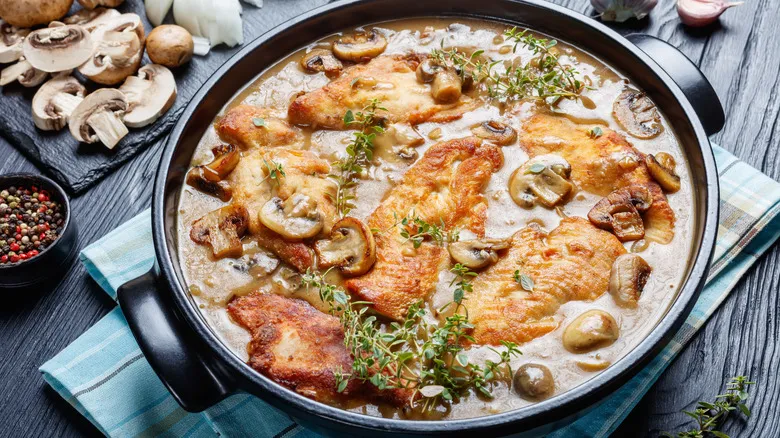
The Absolute Best Type Of Wine To Drink With Chicken Marsala
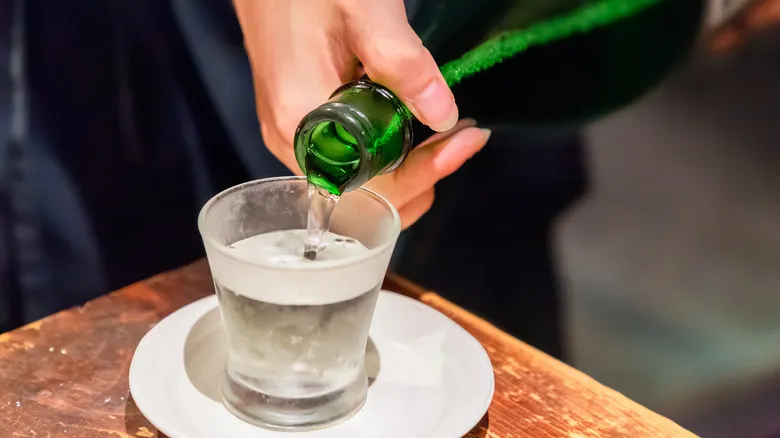
How Long Sake Will Still Taste Good After Opening
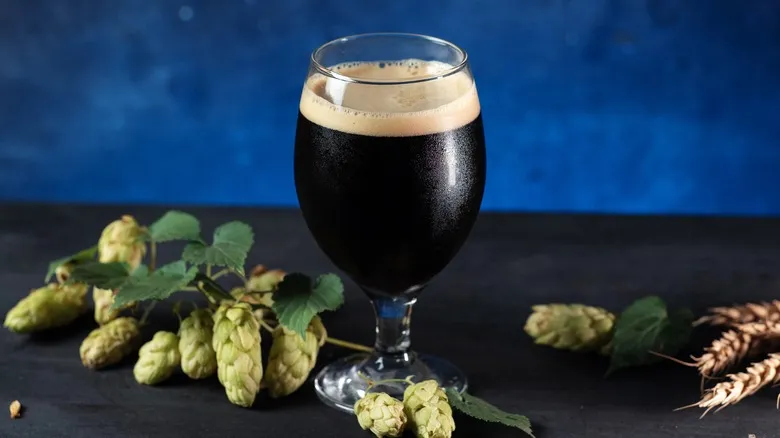
What Is A Porter Beer, And How Is It Different From Stouts?
Next up

